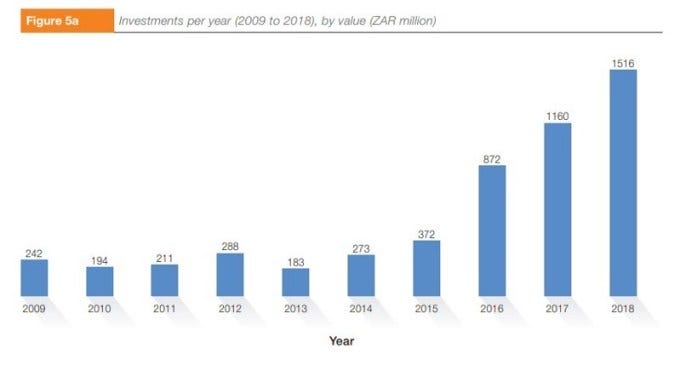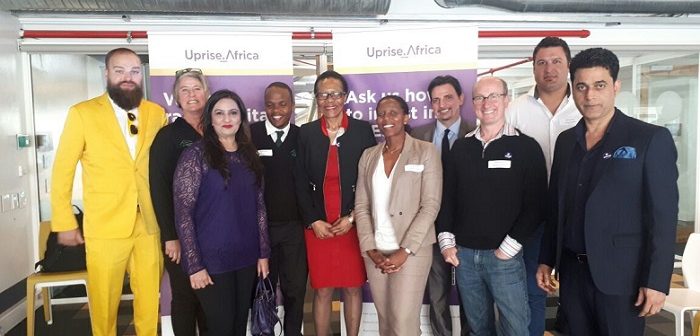Troubled South African Airline SAX Employees Want To Use Crowdfunding Platform Uprise.Africa To Save The Airline From Death
In a novel, de-risked funding strategy, a group of South African Express employees have engaged an equity funding platform, Uprise.Africa, to assist in raising the capital needed to save SA Express.

“Liquidating SAX translates into slicing through the very artery that feeds the minor towns and cities in SA, and closing the gateway to our more rural areas,” said SAX spokesperson Michael Hlatshwayo in a statement.
“One of the major factors in improving our economy, would be to stimulate internal travel by South Africans taking ‘sho’t lefts’ through the country. Without a skilled carrier such as SAX, this becomes difficult for many everyday South Africans.”

Here Is What You Need To Know
- The group strongly believes that SA Express (SAX) is a national asset that should be salvaged and definitely not liquidated. They further believe that the company is a viable business and if rescued with the correct strategy, could be a very profitable one.
- In addition to the loss of access to cities and towns, liquidating SAX will have a massive detrimental effect on the staff, says the statement. SAX directly employs skilled and moderately skilled South Africans. 60% of these citizens are in the minor cities, providing jobs, livelihoods and a vital economic lifeline to thousands of people in the cities. 30% of the staff complement come from the rural areas where skills are severely underdeveloped, but with the assistance from companies such as SAX, skills could be recognized and developed.
“The airlines internal financial troubles stem from political interference in its operations, nepotism, poor controls and poor management, exacerbated by external challenges – we can change this! “added Michael Hlatshwayo
“SAX’s fundamental business models are sound with small, cost-efficient aircraft, under-serviced destinations and exclusive, high-value routes. The execution of a revised business model and right-sized operation, by competent management, free of political interference, will return the airline to profitability.”
“A ‘survival mode’,” is important for them to emerge with stronger mindset to shape their future vision with a new perspective and lay the foundation for implementing this new approach. It takes a lot of hard work to publicize your offering and attract potential investors,” says Tabassum Qadir, the CEO of Uprise.Africa,

Read also: Why More South African Startups Have Raised Funds This Year
The Increasing Role Of Crowdfunding
2019 was significant for South African startups, with Intergreatme and Beerhouse raising substantial sums from Uprise.Africa, a crowdfunding platform in record-breaking deals. Through equity crowdfunding, Uprise.Africa empowers entrepreneurs to raise between R3 million and R250 million in exchange for equity shares.
Crowdfunding refers to raising money from the public (who collectively form the “crowd”) primarily through online forums and social media. At a time when most African countries are yet to open their doors up to crowdfunding, South Africa is increasing the chances of startups raising capital through this means. Enabled by the friendly legal framework on crowdfunding in South Africa, Africa’s first equity crowdfunding, Uprise.Africa, and South African alternative exchange ZAR X recently entered into an agreement that will see the mini stock exchange list any up-and-coming entities, which have already successfully raised capital via crowdfunding, and freely trade their shares on the open market.
Not only could the arrangement be the funding gap filler that fledgling South African entrepreneurs desperately seek, but it could bring the local capital market to the people. The partnership also solves the fundamental flaw of all other pre-IPO models, namely that once a company has issued the shares they remain fairly illiquid, with investors having their funds tied up until that company looks at going public.
Charles Rapulu Udoh

Charles Rapulu Udoh is a Lagos-based lawyer who has advised startups across Africa on issues such as startup funding (Venture Capital, Debt financing, private equity, angel investing etc), taxation, strategies, etc. He also has special focus on the protection of business or brands’ intellectual property rights ( such as trademark, patent or design) across Africa and other foreign jurisdictions.
He is well versed on issues of ESG (sustainability), media and entertainment law, corporate finance and governance.
He is also an award-winning writer










